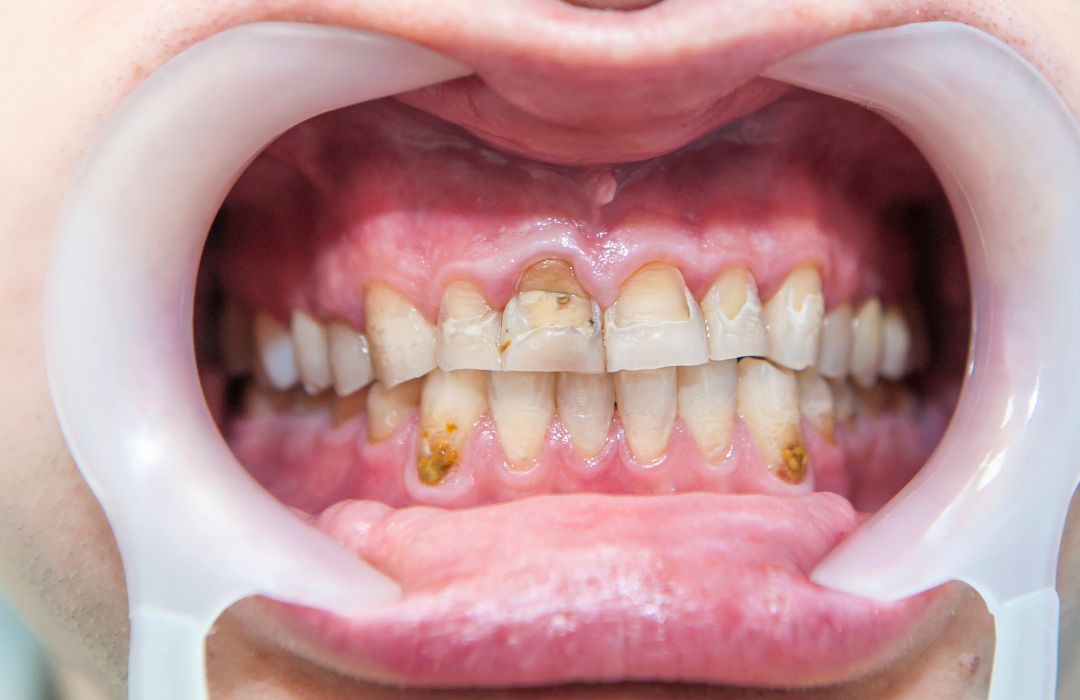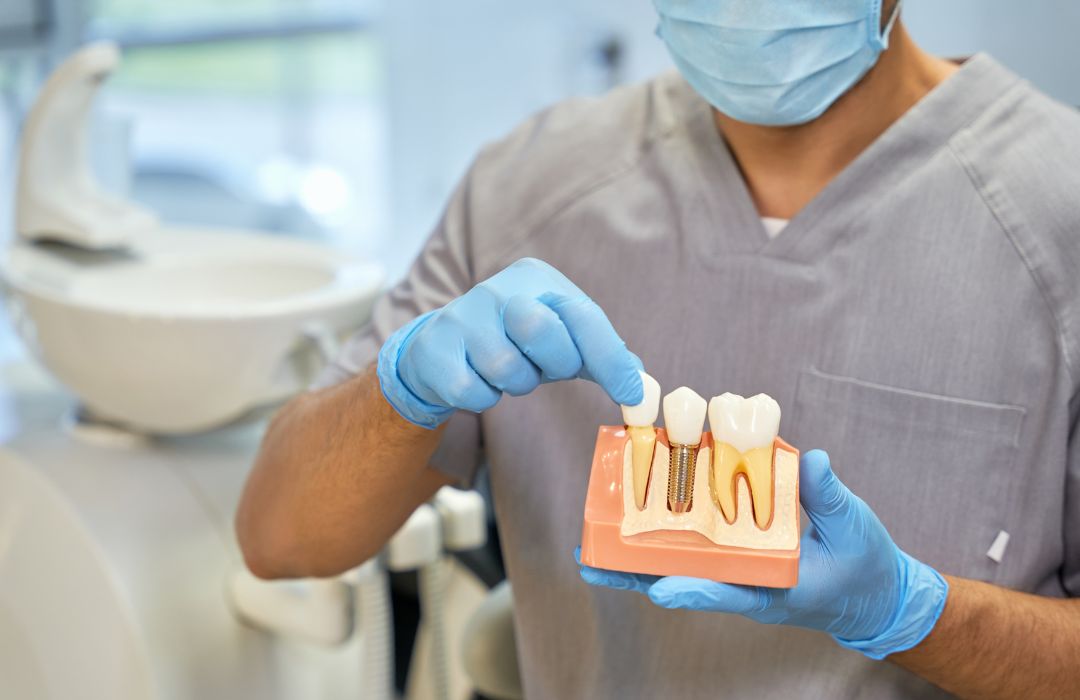ORTHODONTIC TREATMENT / BRACES
Best Orthodontist in Kanpur
This section explains the various stages of a normal course of orthodontic treatment.
The first consultation
During this visit the patient is examined clinically by our Orthodontist. This enables him to give advice on the treatment options available, when treatment should commence, the duration of treatment, and the approximate cost.
If the patient decides to proceed with treatment, an appointment is made to collect records.
Records include:
- Impressions from which plaster models of the teeth are constructed.
- Photographs of the teeth and face.
- X-rays of the teeth and jaws.
Records allow the orthodontist to analyse each case accurately. They are also used to record the existing malocclusion for future reference.
Treatment Planning
At this visit the orthodontist discusses the treatment plan(s), which have been formulated using information obtained from the first consultation and records.
Then, arrangements are made to commence treatment or, if it is too early, to review the patient periodically until it is an appropriate time to commence treatment.
Extractions and other preliminary procedures
Sometimes it is necessary to remove teeth to gain sufficient space to align the remaining teeth. Any decayed teeth should be filled and the teeth sometimes need to be cleaned before orthodontic treatment is started.
The patient is referred back to the family dentist to have these preliminary procedures carried out. The cost of these procedures is not included in the orthodontic fee.
BRACES
Braces are the most efficient and accurate way of moving teeth.
Braces (bands, brackets and wires) are usually made of stainless steel although clear brackets are available, usually at extra cost.
Fitting the braces usually involves two visits. Braces remain on the teeth for the entire duration of treatment.
Patients then attend approximately every 4-8 weeks for adjustments, wire changes, etc. Rubber Bands and Headgear
During treatment, patients may need to wear such items as rubber bands and/or headgear with their braces. These items provide important extra forces for the correction of the bite.
How Long?
Orthodontic treatment usually takes 18 – 24 months. Some cases may be finished earlier and others may take longer to complete. The total treatment time depends on the severity of the original malocclusion, the type of treatment carried out, and the co-operation of the patient.
Dental check-ups
Orthodontic patients should continue to attend their family dentist for regular check-ups during the course of orthodontic treatment.
Retention
At the completion of the active part of orthodontic treatment, the braces are removed and retaining appliances (retainers) are fitted to hold the teeth steady in their new position. These appliances may be removable plates or wires fitted behind the teeth.
Retainers play an important role in orthodontic treatment for, if they are not worn according to instructions, the teeth may move back towards their original position.
The retaining appliances are usually worn:
- Full-time for up to one year
- Just at night for a further year
- Phased out altogether over one more year
The corrected teeth are observed periodically for up to five years after the retainers have been phased out. During retention and the subsequent observation period, patients are expected to attend once or twice a year.
Orthodontics for Children
Q. At what age should a child have an orthodontic examination?
Ans. Age 7, unless you suspect a problem at an earlier age, because most facial asymmetries are likely to be apparent by that time. A timely screening will lead to extraordinary treatment benefits. For others, the principle benefit is peace of mind.
Q. Why are children being evaluated at such an early age?
Ans. Early diagnosis and treatment can guide erupting teeth into a more favorable position, preserve space for the permanent teeth and reduce the likelihood of fracturing protruded front teeth. Also, early treatment may shorten treatment time, make treatment easier and in some cases less expensive. It may even provide advantages that are not available later.
Q. Is orthodontic care expensive?
Ans.Orthodontic therapy may eliminate the need for other medical and dental treatment. The physical and psychological benefits usually last a lifetime, which makes orthodontics one of the best investments in healthcare and quality of life.
Q. What is the psychological impact of early treatment?
Ans. Appearance has been related to popularity, social behaviors, self-expectation, personality style, and self-esteem. Orthodontic therapy may lessen the likelihood that a child will be picked on by other children. Treatment may reduce appearance-consciousness and the emotional scarring that can occur during critical developmental years. Also, as adolescents enter the sensitive teenage years, they become far less receptive to orthodontic therapy.
Q. In addition to esthetic improvements, what are some other benefits of orthodontic therapy?
Ans. Additional benefits may include better function, improved cleanability, more favorable wear patterns and greater longevity of natural teeth.
Q. Why is the growth spurt at puberty so important in orthodontics?
Ans. This is the time when much of the development of the face occurs. Treatment during this period allows the orthodontist to favorably influence the facial profile in a growing child. Once growth of the facial bones is complete, correction of skeletal discrepancies usually requires surgery.
Q. If I’m not sure about the need for orthodontics, how should the patient he managed?
Ans. If in doubt, refer. If you notice a problem and refer to a specialist, your legal and professional responsibilities are fulfilled. Also, an early referral can avoid more complex problems that may worsen with time.
Q. What’s the problem with waiting until the permanent teeth erupt to refer?
Ans. The problem may be one of opportunities missed with respect to growth and development. While patients can be treated at any age, those with available growth may enjoy a substantial advantage. Timely treatment may prevent the need for jaw surgery, extraction of permanent teeth, or fracture of protruded incisors. Early treatment may also help the psychological development. Patients also benefit from guidance of tooth eruption.
Orthodontics for Adults
Q. At what age is a patient too old for orthodontics?
Ans. Patients who have teeth and healthy supporting structures are never too old for orthodontic therapy. Age is not a factor.
Q. How can I tactfully approach an adult patient who could benefit from orthodontics?
Ans. Ask the question: “Are you happy with the appearance of your teeth?” The ill be your guide to further answer will be your guide to further development of the conversation.
Q. Why are adults seeking orthodontics in increasing numbers?
Ans. Many adults are receiving orthodontic care that was not available to them as children. They realize that improving the health of their mouths and the attractiveness of their smiles and facial appearances can result in changes for the better in their personal, social, and professional lives. Technical advances have also had an impact on adult therapy.
Q. What are some of those advances?
Ans. Advanced technology has produced small tooth-colored brackets that are barely noticeable. Specially alloyed wires are more comfortable, can speed up treatment, and may decrease the number of necessary appointments. New retainers can be placed where they do not show. Also, advanced surgical techniques now allow treatment of many skeletal problems after growth is completed.


